7 Best Herbal Creams For Knee Swelling
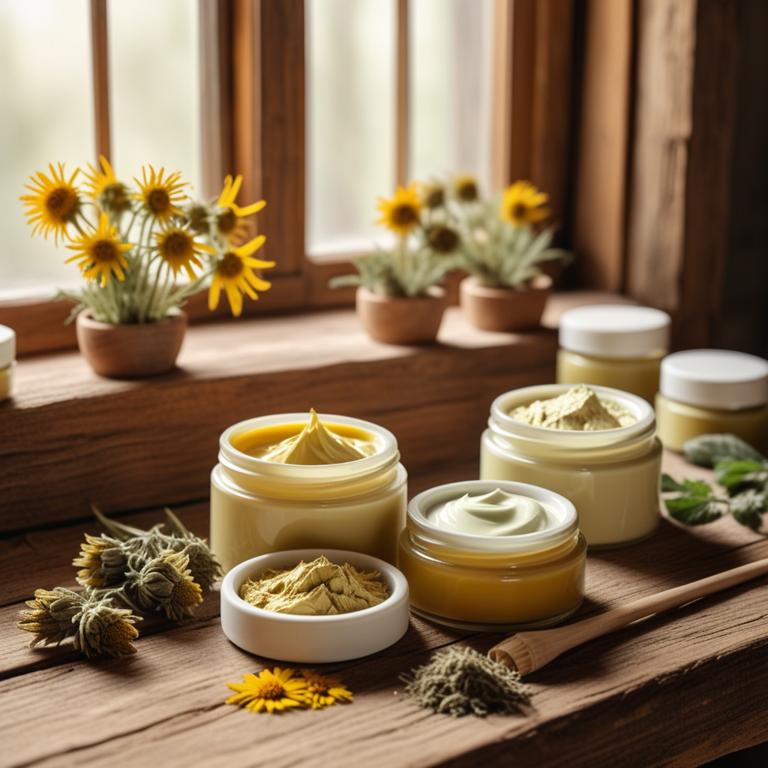
Herbal creams for knee swelling are topical ointments made from various plant extracts and essential oils, designed to provide relief from swelling and inflammation in the knee joint.
These creams offer numerous benefits, including reduced pain and inflammation, improved mobility, and a natural alternative to synthetic medications.
Examples of herbal creams used to treat knee swelling include arnica cream, which reduces inflammation and promotes healing, turmeric cream, which contains curcumin to combat inflammation and joint pain, and willow bark cream, which contains salicin, a natural pain reliever.
Other herbal creams used to treat knee swelling include ginger cream, which reduces inflammation and pain, boswellia cream, which reduces inflammation and improves joint mobility, and meadowsweet cream, which reduces inflammation and pain due to its anti-inflammatory properties.
According to the study, creams for knee swelling, such as diclofenac and ketoprofen creams, can alleviate pain by reducing inflammation and are considered a viable option for knee osteoarthritis management, particularly among elderly patients.
Below there's a list of the 7 best herbal creams for knee swelling.
- 1. Arnica montana creams
- 2. Hamamelis virginiana creams
- 3. Symphytum officinale creams
- 4. Curcuma longa creams
- 5. Boswellia serrata creams
- 6. Calendula officinalis creams
- 7. Aloe barbadensis creams
Also you may be interested in...
TODAY'S FREE BOUNDLE
Herb Drying Checklist + Herbal Tea Shopping List + Medicinal Herbs Flashcards
Enter you best email address below to receive this bundle (3 product valued $19.95) for FREE + exclusive access to The Aphotecary Letter.
$19.95 -> $0.00
1. Arnica montana creams
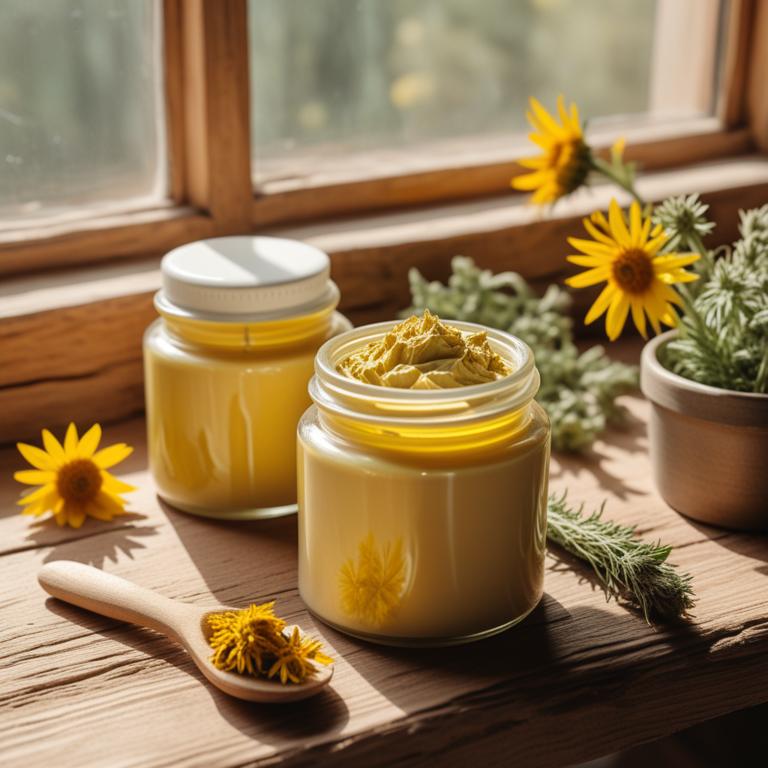
Arnica montana creams have been traditionally used to treat knee swelling ailments due to their anti-inflammatory and analgesic properties, which help to reduce pain and swelling.
The bioactive constituents of Arnica montana, including sesquiterpene lactones, flavonoids, and phenolic acids, work synergistically to inhibit pro-inflammatory enzymes and cytokines, thereby alleviating inflammation and discomfort.
By reducing inflammation and promoting healing, Arnica montana creams help to alleviate knee swelling and improve joint mobility, making them a popular natural remedy for this condition.
The benefits of using Arnica montana creams to treat knee swelling include reduced pain and inflammation, improved joint mobility, and a faster recovery time, making them a safe and effective alternative to conventional treatments.
2. Hamamelis virginiana creams
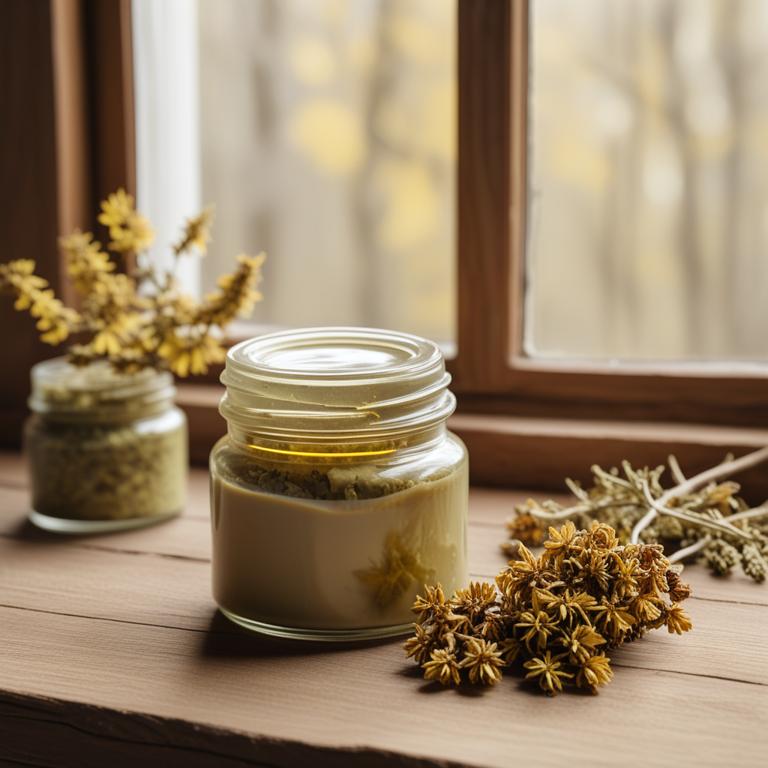
Hamamelis virginiana creams have been traditionally used to treat knee swelling due to its anti-inflammatory and analgesic properties.
The herbal preparation helps to reduce swelling and ease pain by promoting blood flow and reducing inflammation in the affected area.
The bioactive constituents of Hamamelis virginiana, including tannins and flavonoids, work together to inhibit the production of pro-inflammatory mediators and reduce pain and inflammation.
The benefits of using Hamamelis virginiana creams to treat knee swelling include reduced discomfort, improved mobility, and a decrease in the risk of further inflammation and damage.
3. Symphytum officinale creams
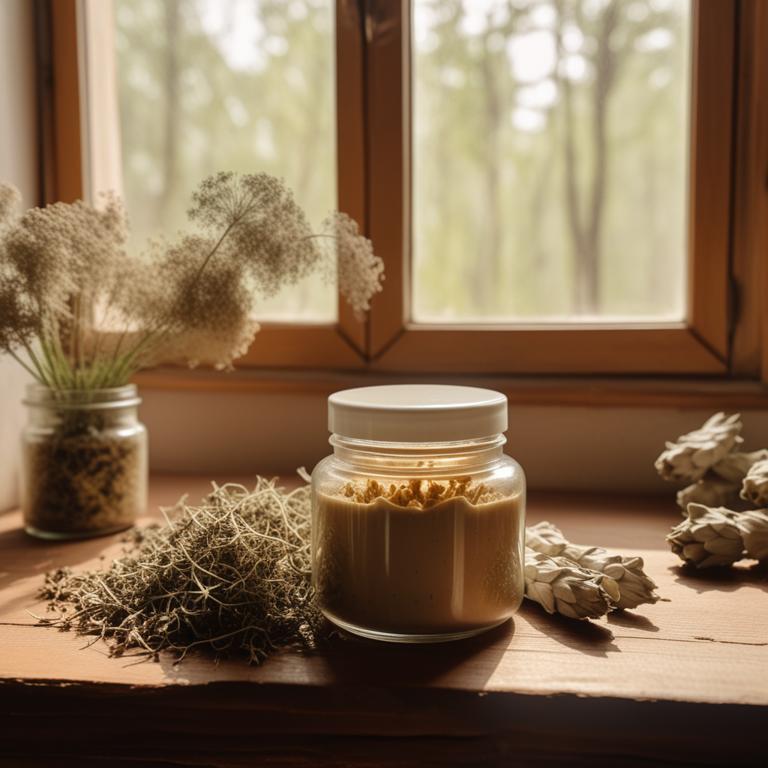
Symphytum officinale creams, also known as comfrey creams, have been used for centuries to treat knee swelling and inflammation.
The anti-inflammatory and analgesic properties of this herbal preparation help to reduce swelling and alleviate pain in the knee joint.
The bioactive constituents, including allantoin, rosmarinic acid, and triterpenoid saponins, work together to reduce inflammation, promote healing, and improve joint mobility.
The benefits of using Symphytum officinale creams to treat knee swelling include reduced pain and inflammation, improved joint mobility, and accelerated healing, making it a popular natural remedy for this common ailment.
4. Curcuma longa creams
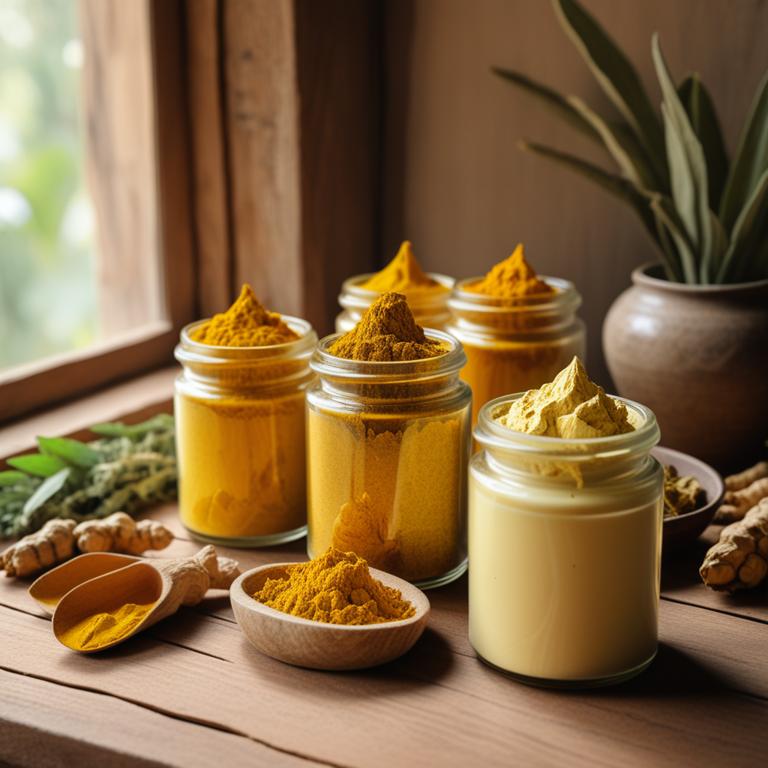
Curcuma longa creams, derived from the Turmeric plant, have been found to be effective in treating knee swelling ailments due to their anti-inflammatory properties.
The active compound curcumin present in these creams helps to reduce swelling and pain by inhibiting the production of pro-inflammatory enzymes.
The bioactive constituents of curcumin, including its phenolic and polyphenolic compounds, contribute to its anti-inflammatory and antioxidant effects, making it an ideal treatment for knee swelling.
Regular application of Curcuma longa creams can provide relief from knee swelling, reduce pain and discomfort, and promote overall well-being.
Related Study
According to the "Journal of medicinal food", Curcuma longa creams for knee swelling using Turmeric extracts have been shown to be effective in reducing pain and inflammation, particularly at night and in standing positions, with a significant decrease in high-sensitivity C-reactive protein levels.
5. Boswellia serrata creams
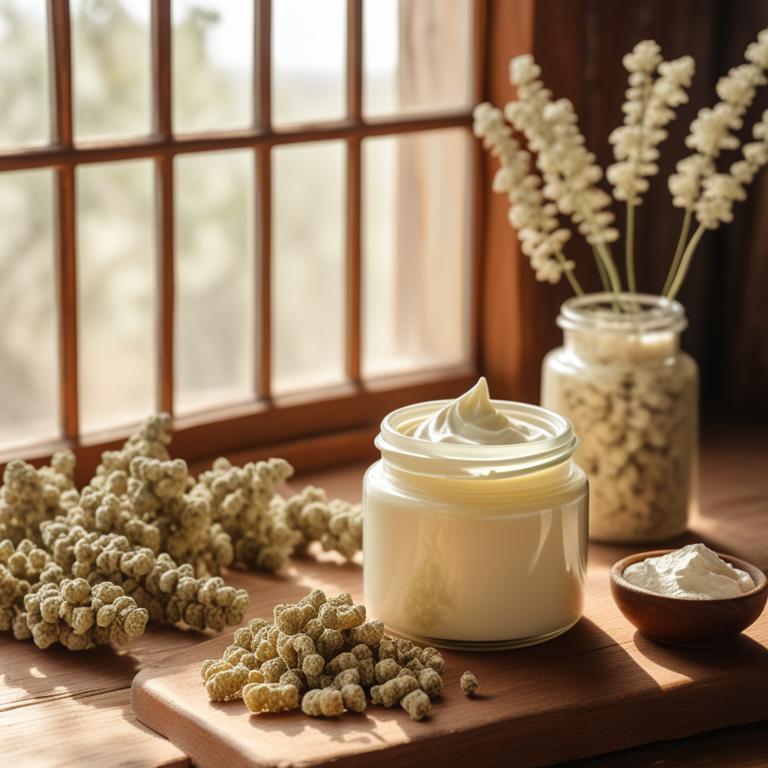
Boswellia serrata creams have been traditionally used to treat knee swelling, also known as osteoarthritis, due to their anti-inflammatory and analgesic properties.
These creams help to reduce swelling and alleviate pain by inhibiting the production of pro-inflammatory enzymes, thereby reducing inflammation and promoting relaxation of the joint muscles.
The bioactive constituents present in Boswellia serrata, such as boswellic acids, acetyl-11-keto-β-boswellic acid (AKBA), and 3-acetyl-11-keto-β-boswellic acid, contribute to its therapeutic effects, including anti-inflammatory and antioxidant properties.
The benefits of using Boswellia serrata creams for treating knee swelling include reduced pain and inflammation, improved joint mobility, and enhanced overall quality of life.
6. Calendula officinalis creams
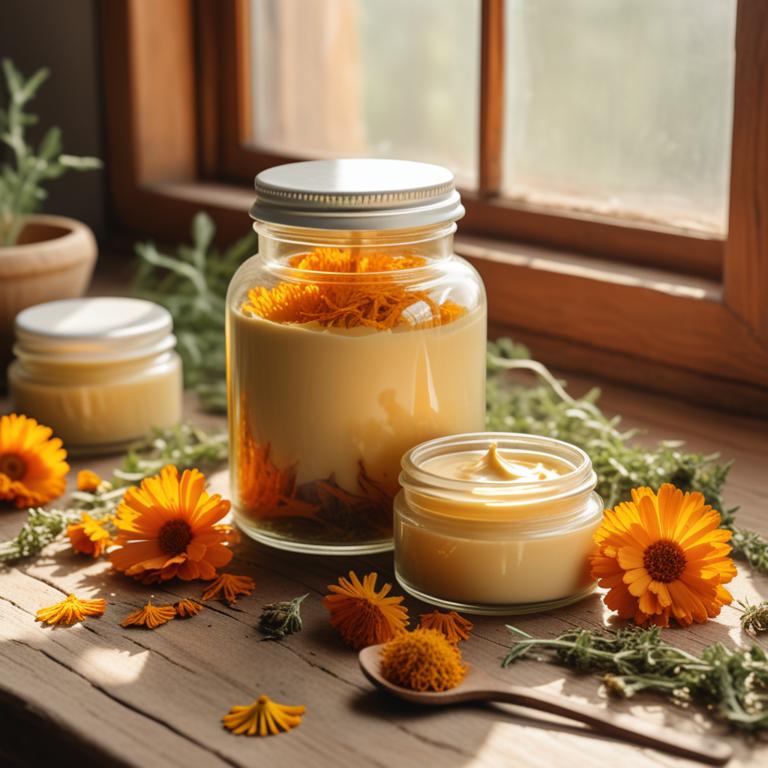
Calendula officinalis creams have been traditionally used to treat knee swelling ailments due to their anti-inflammatory and antiseptic properties, which help to reduce swelling and promote healing.
These herbal preparations work by soothing the affected area, reducing pain and inflammation, and promoting the growth of new tissue, thereby helping to alleviate the symptoms of knee swelling.
The bioactive constituents of Calendula officinalis, including triterpenoids and flavonoids, are responsible for its therapeutic effects, which help to reduce inflammation and promote wound healing.
The benefits of using Calendula officinalis creams to treat knee swelling include reduced pain and inflammation, accelerated wound healing, and improved joint mobility, making it a popular natural remedy for this condition.
Related Study
According to "Roumanian archives of microbiology and immunology", Calendula officinalis creams for knee swelling may be beneficial due to its antioxidant properties, particularly its ability to scavenge reactive oxygen species and exhibit anti-inflammatory activities, which could help reduce knee swelling.
7. Aloe barbadensis creams
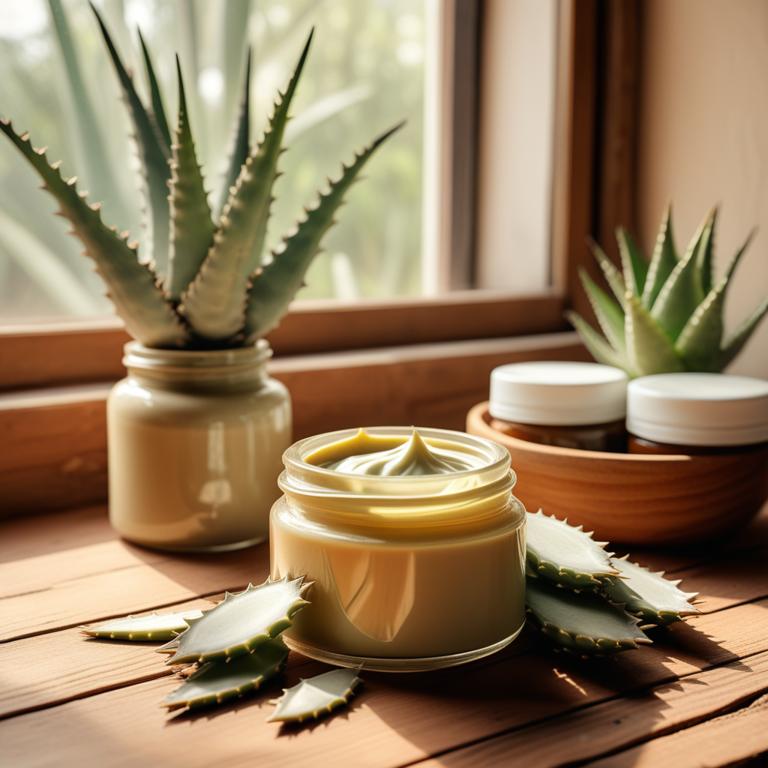
Aloe barbadensis creams have been used to treat knee swelling, a condition characterized by inflammation and fluid retention in the knee joint.
The anti-inflammatory and soothing properties of Aloe barbadensis creams help to reduce swelling and pain by suppressing the production of pro-inflammatory enzymes and promoting the healing of damaged tissues.
Bioactive constituents such as aloin, aloe-emodin, and vitamins A, C, and E in Aloe barbadensis creams contribute to their therapeutic effects, including reducing inflammation, improving wound healing, and protecting against oxidative stress.
The benefits of using Aloe barbadensis creams to treat knee swelling include reduced pain and inflammation, improved joint mobility, and a faster recovery time, making it a popular natural remedy for this condition.
Related Study
According to "Journal of the American Podiatric Medical Association", Aloe barbadensis creams for knee swelling have been found to reduce vascularity by 50% and the number of mast cells in synovial fluid by 48% in a study on a synovial air pouch model, also stimulating fibroblasts for growth and repair of the synovial lining.